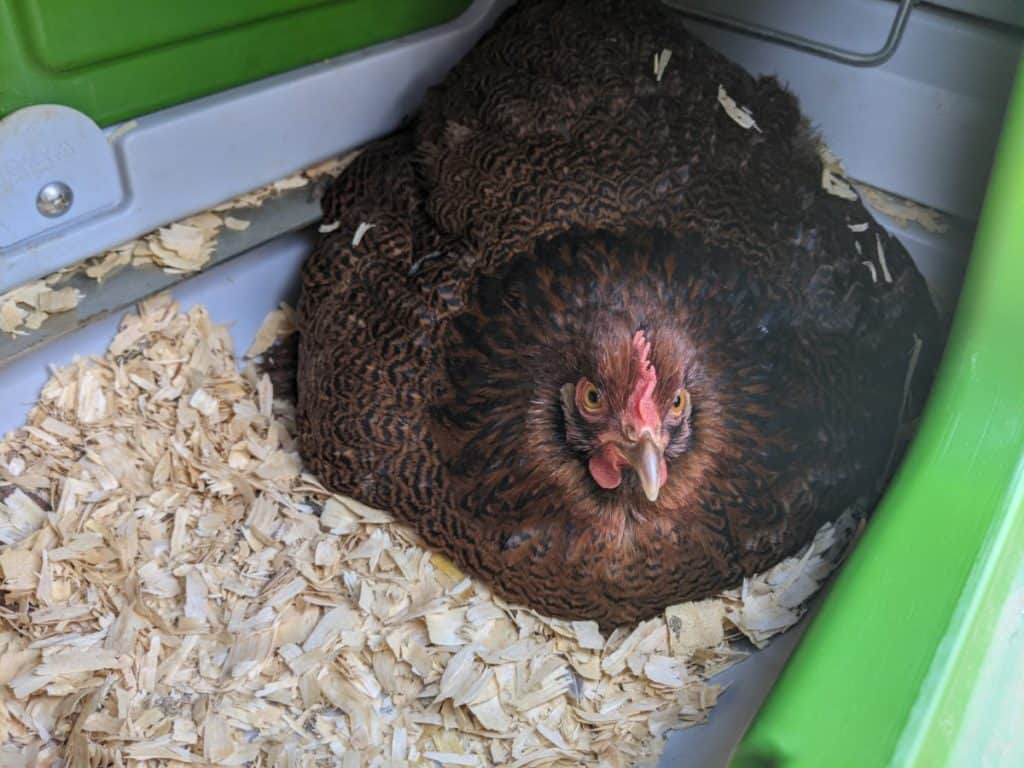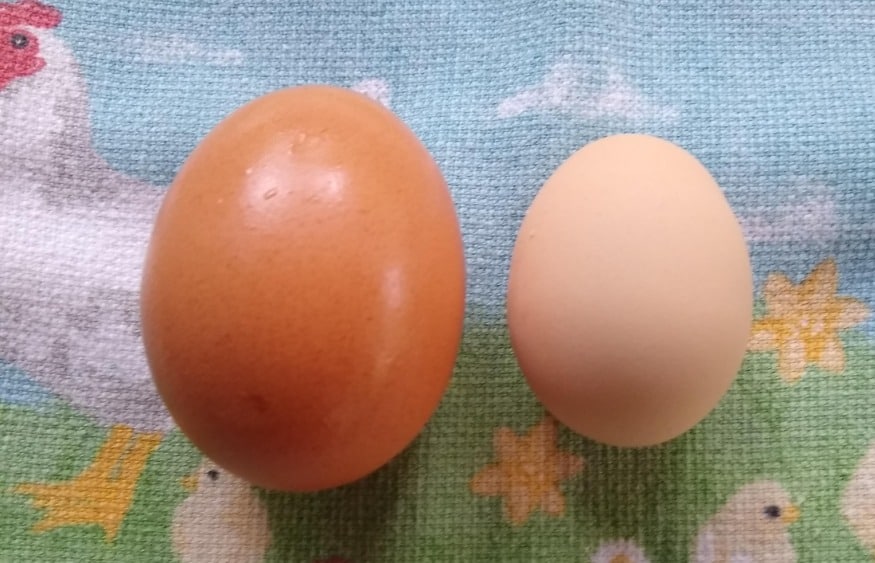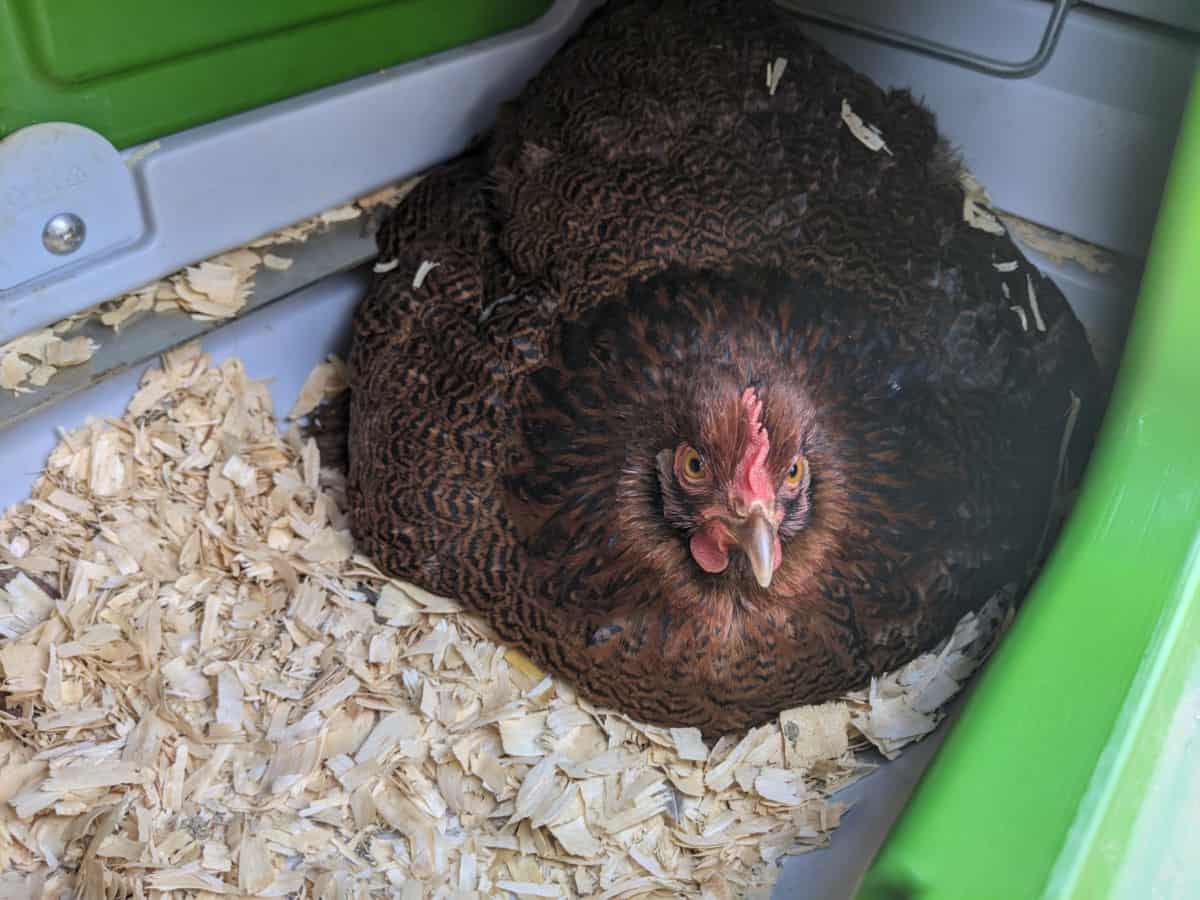
Most chicken owners are animal lovers and do not want their chickens to hurt in any way. They do all that they can to make sure that their chickens are kept safe, healthy, and happy.
One thing that they do not have control over, though, is the egg-laying process.
This can be a stressful process for chicken owners, but not so much for the chickens themselves. Many hens lay their eggs almost daily, and with the ease that they do it, it may have most chicken owners wondering if it is painful for chickens to lay eggs?
Some hens may feel pain or discomfort while egg-laying. This pain and discomfort generally goes away as soon as the egg drops. All the visual indications that we have suggest that this pain is not severe. Younger chickens tend to have more discomfort as their bodies adjust to egg-laying.
Even though hens do not really feel pain while laying eggs, there can be some issues that develop that can cause the chicken’s pain levels to rise and can sometimes be fatal for the chicken if not treated properly.
There are some actions that you can do for your chickens to ensure that they are as comfortable as can be to lay beautiful colors of eggs.
Does Egg-Laying Hurt Chickens?
A hen can feel some discomfort and pain while laying eggs. This pain is most likely not too bad as the chickens lay their eggs fairly quickly and don’t usually exhibit signs of extreme pain while laying their eggs or after their eggs have dropped.
The hen usually sits in the nesting box for a while, and then about a minute or two before the egg arrives, the chicken will stand up and begin to push until the egg drops. It generally takes about 30 seconds for the egg to be laid.
Once the egg is out, the chicken should be back to normal and not experience any negative side effects or pain. If your chickens are not back to normal minutes after the egg-laying, then this could indicate a problem.
There are some factors that you may need to look out for when your chickens are laying their eggs, some of which can be fatal. Let us see what a few of these factors are.

Factors That Could Affect The Egg-Laying Pain
There are quite a number of problems that can make laying eggs somewhat painful for chickens. Some of these factors can be rare, and some could give you an indication of the health of your hens.
If you see these indications, you may need to change your chickens’ diet to include a larger variety of minerals and vitamins to ensure that your hen is healthy and does not struggle in any way to lay her eggs.
Some of these factors could change over time and possibly even go away without your help. Let us go through some of these problems.
The Age Of Your Chicken
If your chicken is younger, it could be more painful or uncomfortable for them to lay their eggs. You will notice that when they strain to push the egg out, they may make a gasping kind of sound or a wheezy sound, which could be an expression of discomfort in your hens.
Some young hens may even let out a little squeak when the egg clears the birth canal and the egg drops. This can mean that the hen was in some discomfort or pain throughout the egg-laying process. As your chickens grow older, this discomfort may ease.
The Size Of The Chickens Egg
On occasion, a chicken may lay an egg that is unusually large. Some of these eggs may be double the size of their regular eggs from that breed of chicken, and they could sometimes be even larger than double the size.
The bigger the egg is, the more likely it was that it was painful or uncomfortable to lay for the chickens. Usually, these giant eggs have some blood smeared on them once the egg has been laid. This can be an indicator that the vent (birth canal) is damaged, caused by the extra-large egg that was passing through it.
This larger egg would not only be painful and uncomfortable to lay, but the chicken may show some signs of pain for a while after the eggs were dropped. This could happen during the chicken’s ovulation; the chicken’s ovaries may release two yolks instead of one, causing the egg to be larger than normal.
The Egg Has A Thin Shell
If the chicken does not get enough calcium and other essential minerals, the shells of their eggs can be quite thin. Normal, healthy eggs tend to pass through the chicken’s reproductive system without incident. However, these thin-shelled eggs are quite fragile and can be broken very easily.
These thin-shelled eggs could break inside the chicken as it is being laid, causing sharp pieces of eggshell in the vent (birth canal) of the chicken.
These sharp eggshell pieces could cut the chicken as they come out. These cuts can be small and minor, but they can lead to a serious infection if not treated in a timely manner.
A Chicken Being Egg-Bound
A situation that is quite painful for a chicken to go through is when the chicken gets egg-bound. When a chicken is egg-bound, this means that a large egg was not able to pass through the vent (birth canal) of the chicken, causing the egg to physically get stuck inside the chickens’ reproductive system.
A chicken that is egg-bound will show clear signs of discomfort and pain. These signs include not getting up and moving around, she may be weak, and she may have a difficult time breathing. This problem could be fatal if not treated immediately.
A chicken being egg-bound is somewhat rare, and it mostly happens to high production hybrid chicken breeds or young hens. To help make sure that this does not happen to your chickens, you need to feed your chickens correctly and with the right amount and provide your chickens with enough space for physical activities.

Ways To Help Chickens With Egg Laying
As chicken owners, we do not like seeing our chickens in pain; luckily, there are a few things that we, as owners, can do to help make our chickens as comfortable as possible during the laying of their eggs.
A good way to make sure your chickens are comfortable is to provide them with a cozy and private spot for her to lay her eggs, such as a nesting box, and then give her some space and privacy.
In this private nesting box, you need to ensure that it is full of good nesting materials for your hen. These materials include fresh, clean chopped straw or hay, as well as aspen pads. You should also consider placing some curtains on your nesting box to add extra privacy and to keep some of the light out. And keep the nest box clean.
Do not disturb your chickens while they are laying their eggs as chickens like to be secluded during this time, and do not try and handle your chickens either while they are trying to lay their eggs.
Conclusion
So, based on the visible indications that are presented to us, most chickens do not tend to be in pain while laying their eggs; they may just feel some slight discomfort during the process.
Younger chickens are more prone to feeling some pain and discomfort as their bodies have quite yet adjusted to laying eggs. But as they grow, this pain and discomfort usually lessens.
Every now and then, there can be some problems that arise in the chickens or the eggs that may cause some pain and discomfort for the chickens. These situations can be related to health issues, ovulation, or some other usual circumstance.
These can cause eggs to break, large eggs to be produced, and large eggs that sometimes get stuck in the chicken’s reproductive systems.
While large eggs can be difficult to prevent, most of the other issues can be prevented by providing the chicken with a stress-free environment, lots of space to run, and the right amount of good, nutritious food.





